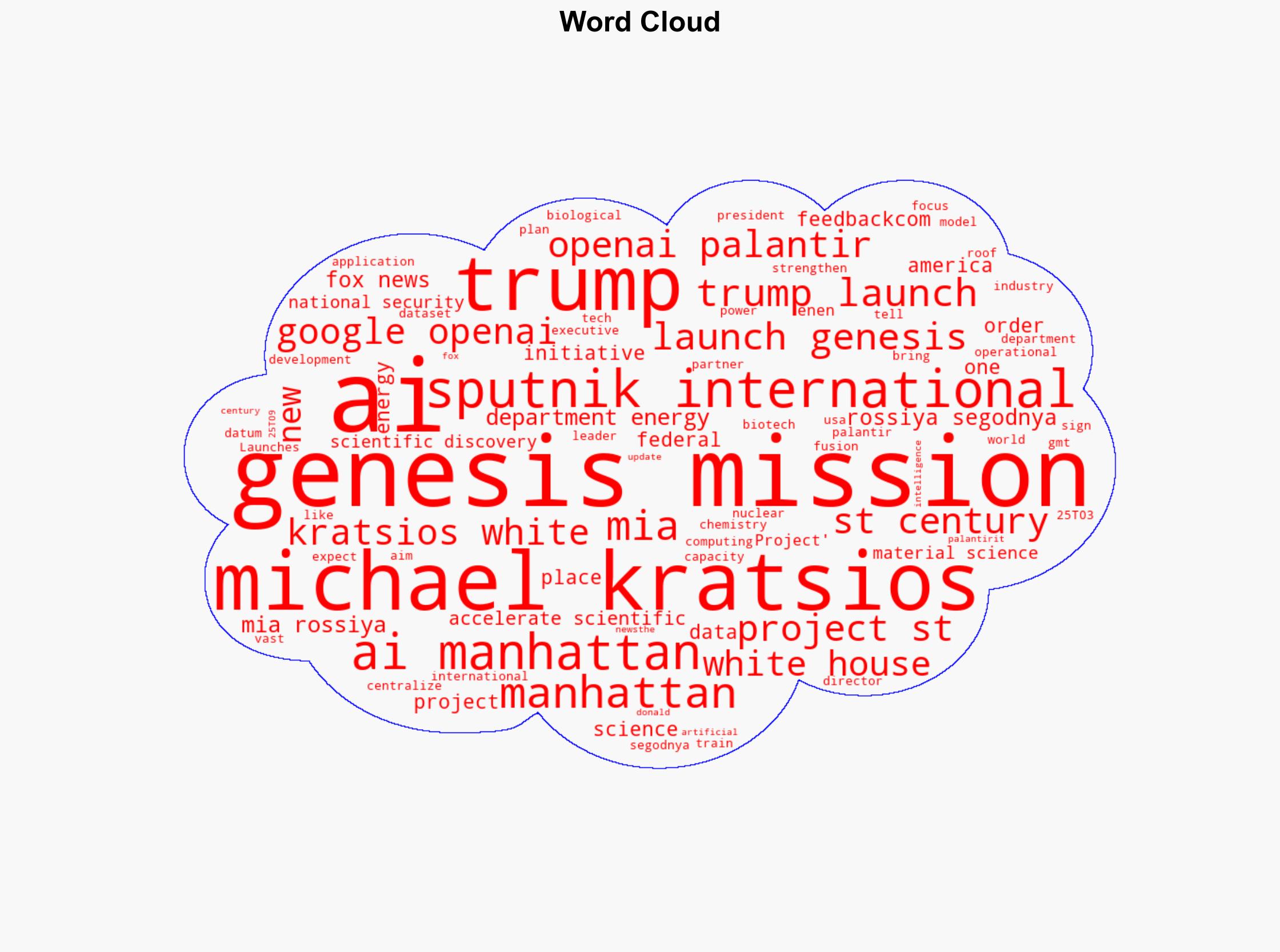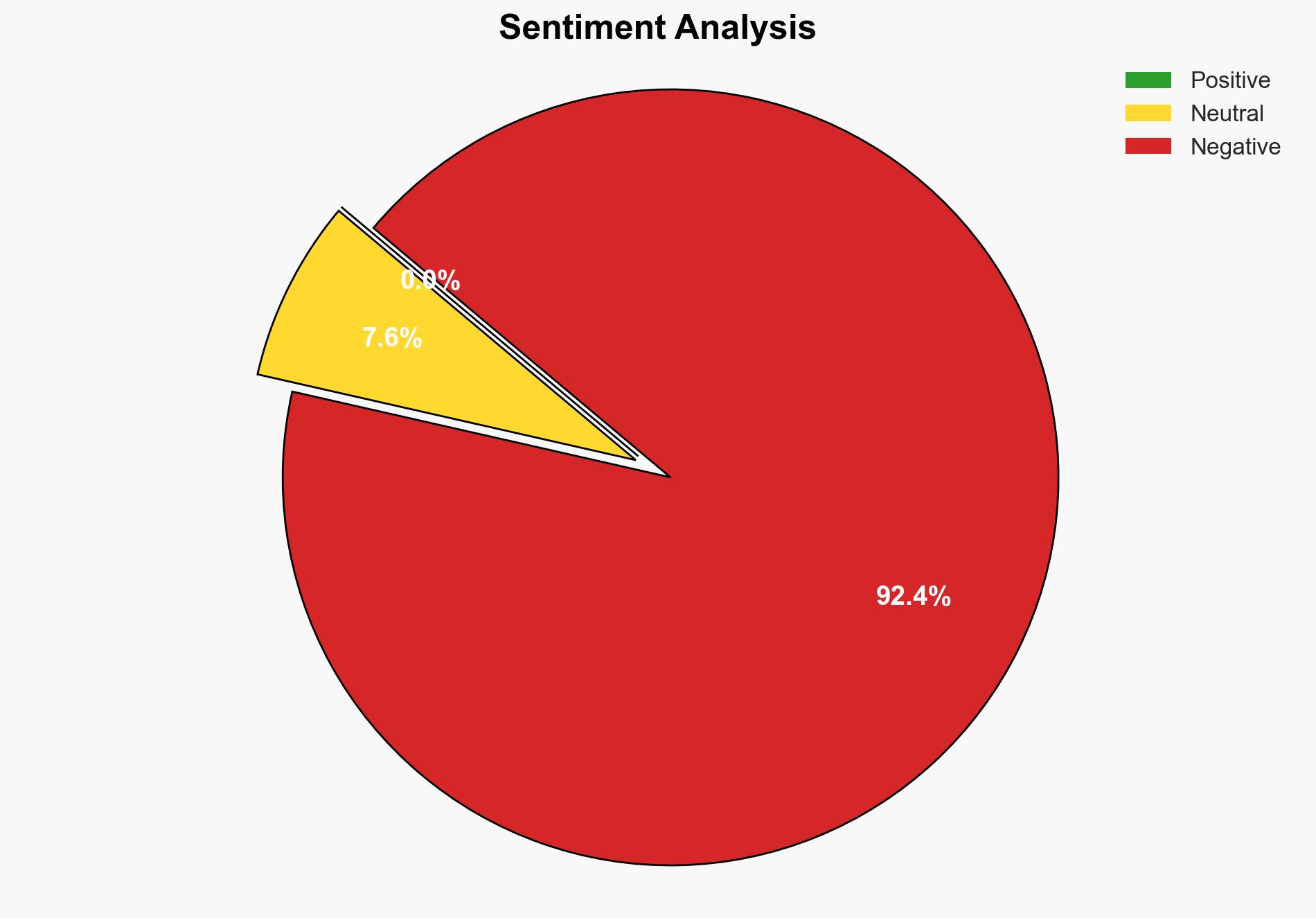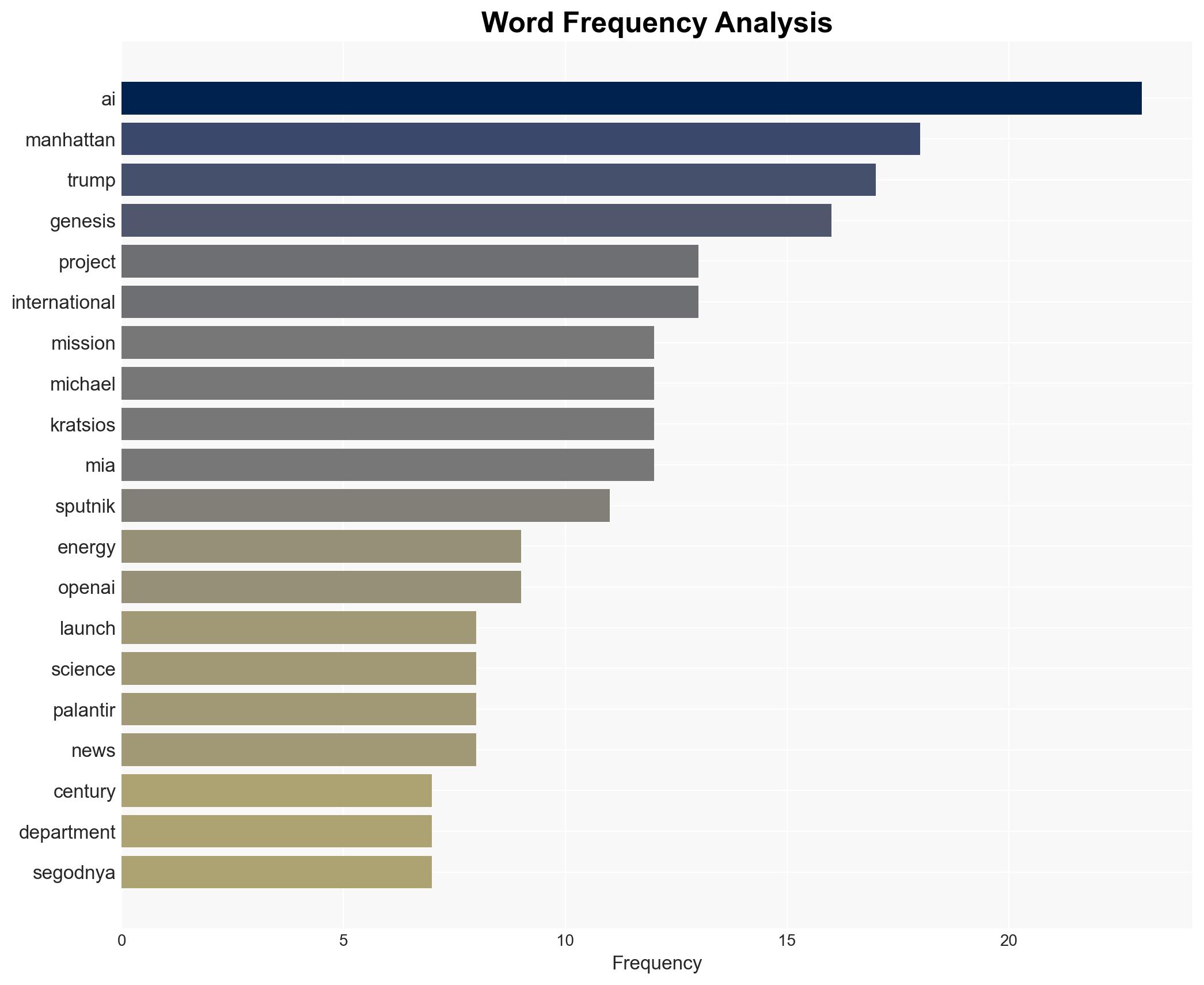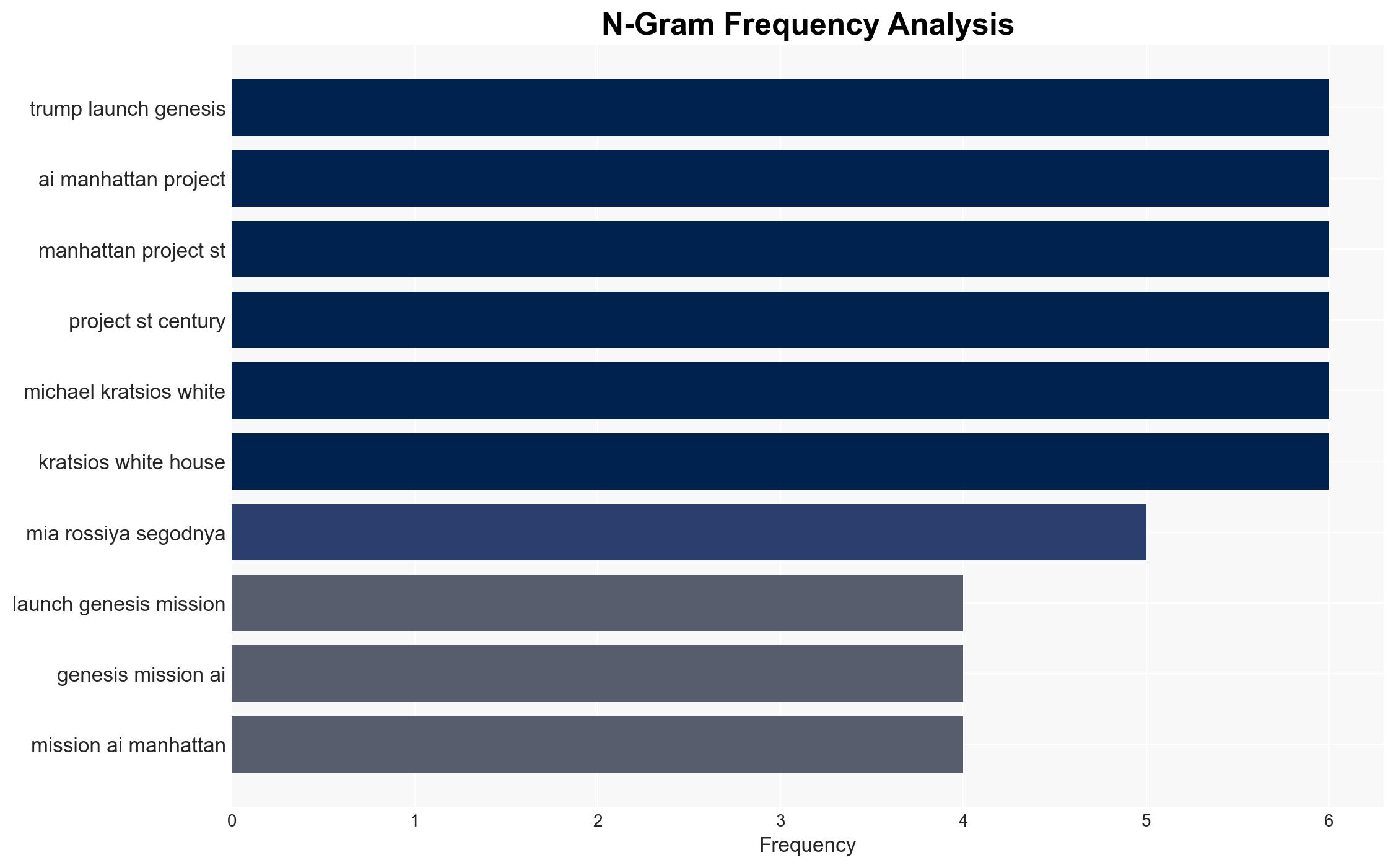Trump Launches ‘Genesis Mission’ AI Project Compared to Manhattan Project
Published on: 2025-11-25
AI-powered OSINT brief from verified open sources. Automated NLP signal extraction with human verification. See our Methodology and Why WorldWideWatchers.
Intelligence Report:
1. BLUF (Bottom Line Up Front)
The launch of the ‘Genesis Mission’ AI project by President Trump is a strategic move aimed at accelerating scientific discovery and strengthening national security through AI advancements. The most supported hypothesis is that this initiative is primarily a national security measure to maintain technological superiority. Confidence level: Moderate. Recommended action: Monitor the project’s development closely, particularly its partnerships and data centralization efforts, to assess potential impacts on global AI leadership dynamics.
2. Competing Hypotheses
Hypothesis 1: The ‘Genesis Mission’ is primarily a national security initiative designed to ensure the United States maintains technological superiority in AI, similar to the historical Manhattan Project.
Hypothesis 2: The project is primarily a scientific and economic initiative aimed at fostering innovation and maintaining the U.S.’s competitive edge in global technology markets.
Hypothesis 1 is more likely given the emphasis on national security and the involvement of entities like the Department of Energy, which traditionally aligns with defense and security objectives.
3. Key Assumptions and Red Flags
Assumptions: The U.S. government has the capability to centralize and effectively utilize vast datasets. Private sector partners will cooperate fully with federal objectives.
Red Flags: Potential over-reliance on private sector companies like Google and OpenAI could lead to conflicts of interest. The initiative’s rapid pace may overlook ethical considerations in AI development.
4. Implications and Strategic Risks
The centralization of data and computing power poses cyber security risks, including potential breaches and misuse of sensitive information. There is also a risk of escalating AI arms races with other nations, particularly China and Russia, leading to increased geopolitical tensions.
5. Recommendations and Outlook
- Actionable steps: Establish robust cybersecurity measures to protect centralized datasets. Engage in international dialogues to set norms for AI development and deployment.
- Best scenario: The U.S. achieves significant scientific breakthroughs and enhances national security without triggering international tensions.
- Worst scenario: The initiative leads to a global AI arms race, increasing geopolitical instability and cyber threats.
- Most-likely scenario: The U.S. strengthens its AI capabilities, but faces challenges in managing ethical and international implications.
6. Key Individuals and Entities
Donald Trump, Michael Kratsios, Google, OpenAI, Palantir, Department of Energy.
7. Thematic Tags
Structured Analytic Techniques Applied
- Cognitive Bias Stress Test: Expose and correct potential biases in assessments through red-teaming and structured challenge.
- Bayesian Scenario Modeling: Use probabilistic forecasting for conflict trajectories or escalation likelihood.
- Network Influence Mapping: Map relationships between state and non-state actors for impact estimation.
Explore more:
National Security Threats Briefs ·
Daily Summary ·
Support us





